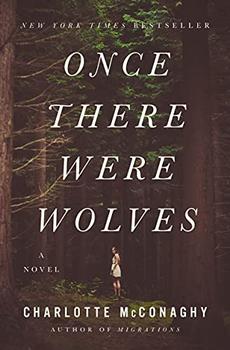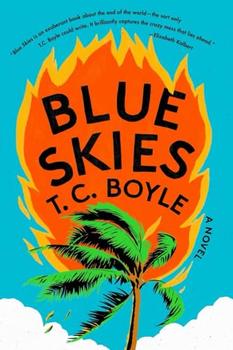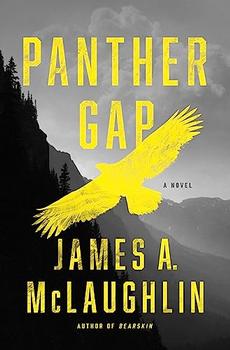Summary | Excerpt | Reading Guide | Reviews | Beyond the book | Read-Alikes | Genres & Themes | Author Bio

Critics' Opinion:
Readers' Opinion:
First Published:
Aug 2021, 272 pages
Paperback:
May 2022, 272 pages
 Book Reviewed by:
Book Reviewed by:
Callum McLaughlin
Buy This Book
In Charlotte McConaghy's second novel after her debut Migrations, environmental biologist Inti Flynn has just arrived in Scotland. The head of a controversial rewilding project (see Beyond the Book), she is tasked with overseeing the release of wolves throughout Cairngorms National Park. Fearing for their livestock, the surrounding community of rural farmers is immediately resistant, and their hostility reaches a fever pitch when a man is found dead. Inti is determined to absolve the wolves of blame — and thus spare them from a brutal culling — but to do so means proving there's a killer in their midst.
McConaghy's prose is gorgeous, without ever feeling overwrought. She paints vivid pictures of Scotland's rugged landscape, contrasting its beauty with the inherent dangers of living and working on such harsh terrain. The nuance of her writing is such that, though the novel is a gripping page-turner, it also delves deeply into the psyche of its characters, as more and more secrets bubble to the surface.
Inti is accompanied to Scotland by her mute, largely housebound sister, who is suffering the devastating physical and emotional fallout of an abusive relationship. The fierce love between the sisters and their determination to protect each other mirrors the bonds between the newly freed wolves. Are we not, after all, pack animals too, just as capable of savagery if it means protecting what we love?
Inti also lives with a rare neurological condition known as mirror-touch synesthesia, which causes the brain to recreate the sensory experiences of others (as in, if she sees someone break their leg, she too will feel a phantom version of that pain). This offered fascinating insight into the experience of this form of synesthesia, but also seemed to speak allegorically of our need for greater empathy with fellow living creatures, and the possibility of tapping into natural instincts lying dormant within.
Violence plays a key role both literally and thematically throughout the novel. As such, it doesn't always paint the most positive picture of society, but there is certainly a good dose of hope. Almost every character is shown to be capable of both great compassion and immense cruelty. McConaghy asks us to consider which of these (if not both) is the true nature of man, and whether or not we possess the power to truly control the wilder aspects of our inner selves.
Still, nothing is ever presented as straightforward, as the author always mines the moral complexities of her characters' situations. Even Inti is regularly forced to question the validity of her project and where the line falls between vital conservation and unethical interference with nature.
Burning with passion, Once There Were Wolves is an ode to the land as it once was. The breathless climax is characterized by a sequence of visually haunting scenes that lend the story a dreamy, fable-esque quality. With this, McConaghy imparts the suggestion that we may yet be able to reclaim what has been lost — a world in which we are all kinder to the planet, ourselves, and each other.
![]() This review was originally published in The BookBrowse Review in September 2021, and has been updated for the
May 2022 edition.
Click here to go to this issue.
This review was originally published in The BookBrowse Review in September 2021, and has been updated for the
May 2022 edition.
Click here to go to this issue.

If you liked Once There Were Wolves, try these:

by T.C. Boyle
Published 2024
From best-selling novelist T. C. Boyle, a satirical yet ultimately moving send-up of contemporary American life in the glare of climate change.

by James A. McLaughlin
Published 2024
The thrilling follow-up to the Edgar Award–winning Bearskin, about two siblings on the verge of inheriting millions but who discover dark secrets in their family's past.




Read the best books first...
Click Here to find out who said this, as well as discovering other famous literary quotes!
Your guide toexceptional books
BookBrowse seeks out and recommends the best in contemporary fiction and nonfiction—books that not only engage and entertain but also deepen our understanding of ourselves and the world around us.